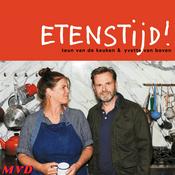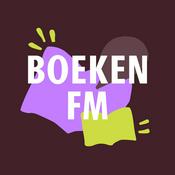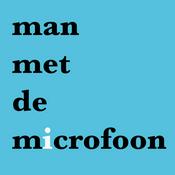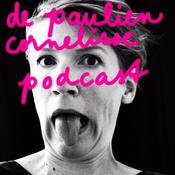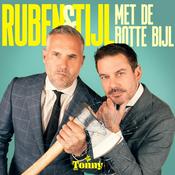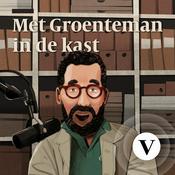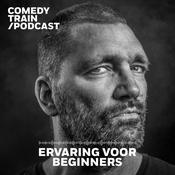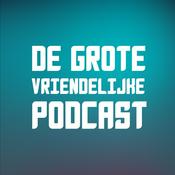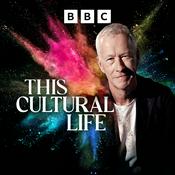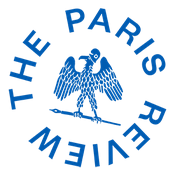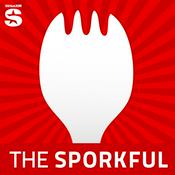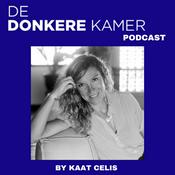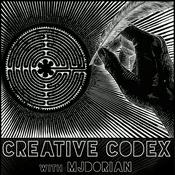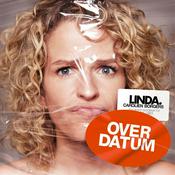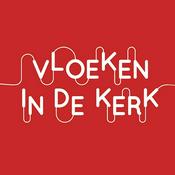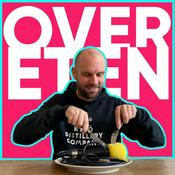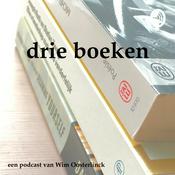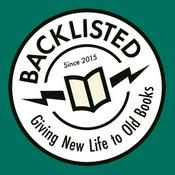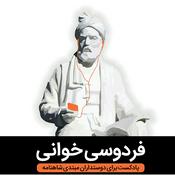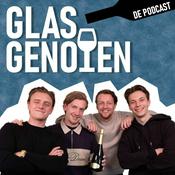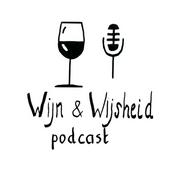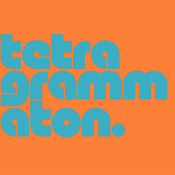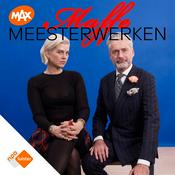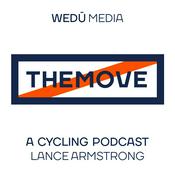Beschikbare afleveringen
5 van 239
- Brain Rules for Aging Well by John MedinaIn this episode of BookBytes, we explore Brain Rules for Aging Well: 10 Principles for Staying Vital, Happy, and Sharp by John Medina. This science-based guide breaks down the key lifestyle habits that support cognitive vitality, emotional balance, and long-term health as we age. Grounded in neuroscience and geroscience, Medina’s rules offer an optimistic, actionable framework for living better—longer. Key Takeaways – Insights from the Book: Social Connection is a Cognitive Superpower • Regular social interaction reduces the risk of cognitive decline by up to 70%. • Loneliness is toxic—it elevates stress hormones, weakens immunity, and shortens lifespan. • Friendships and community engagement act like brain vitamins, keeping neural pathways active. Positivity and Gratitude Protect the Brain • Positive emotions improve memory, attention, and emotional regulation. • Daily gratitude journaling, kindness, and surrounding yourself with uplifting people boost brain plasticity. • The brain continues to change throughout life—it’s never too late to feel better. Mindfulness Reduces Stress and Enhances Clarity • Practicing mindfulness lowers cortisol and improves attention and memory. • Just 10–15 minutes a day can physically reshape the brain—especially areas tied to emotion and cognition. • Mindfulness builds resilience and slows cognitive decline. Lifelong Learning Builds Cognitive Reserve • Learning new skills creates a “cognitive buffer” that protects against age-related decline. • Activities like learning a language, playing an instrument, or teaching others stimulate brain growth. • Cognitive reserve helps delay symptoms of dementia, even when brain changes occur. Exercise is the Ultimate Brain Booster • Regular aerobic exercise increases brain volume, encourages neurogenesis, and improves mood. • Just 150 minutes a week of moderate-intensity movement—like brisk walking—can cut dementia risk dramatically. • Movement is medicine—for the body and the mind. Diet Directly Impacts Cognitive Function • Diets rich in leafy greens, berries, whole grains, and omega-3s protect against inflammation and oxidative stress. • The Mediterranean and MIND diets support memory, focus, and long-term brain health. • What you eat today shapes how your brain works tomorrow. Sleep Restores Memory and Brain Function • Sleep clears brain toxins and consolidates learning. • Lack of sleep increases dementia risk and reduces mental flexibility. • Aim for 7–9 hours nightly and keep a regular sleep schedule. Know the Signs of Cognitive Decline Early • Symptoms like frequent memory loss, disorientation, and impaired judgment can signal early Alzheimer’s. • Early detection allows for better management, lifestyle changes, and support systems. Aging Is Natural—and Influenceable • Genetics account for only 25–33% of longevity; lifestyle choices do the rest. • Healthy aging isn’t just about living longer—it’s about maintaining autonomy, clarity, and joy. Redefine Retirement with Purpose and Engagement • Total retirement can lead to isolation and cognitive stagnation. • Staying active through part-time work, volunteering, mentoring, or lifelong learning keeps the brain sharp. • Purpose fuels longevity. Keywords: Brain Rules for Aging Well, John Medina, healthy aging, brain health, cognitive function, mindfulness, social connection, exercise and brain, Mediterranean diet, dementia prevention, neuroplasticity, cognitive reserve, gratitude, sleep and memory Enjoyed this episode? Don’t forget to: • Leave a 5-star review and subscribe for more transformative book insights.--------9:20
- Overcoming Social Anxiety and Shyness by Gillian ButlerIn this episode of BookBytes, we explore Overcoming Social Anxiety and Shyness: A Self-Help Course by Gillian Butler. Rooted in cognitive behavioral therapy, this practical guide empowers readers to understand and dismantle the mental habits that sustain social fear, while building lasting confidence and comfort in social interactions. Key Takeaways – Insights from the Book: Recognize and Challenge Negative Thought Patterns • Social anxiety is often driven by distorted thinking—like mind reading, catastrophizing, and emotional reasoning. • Identifying and questioning these thoughts helps break the cycle of fear. • Use thought records and flashcards with balanced alternatives to rewire your perspective. Reduce Self-Consciousness to Increase Comfort • Shifting your attention outward—toward the people and world around you—can ease anxiety. • Practice active listening, observe your surroundings, and remember others are likely focused on themselves, not judging you. Experiment with New Behaviors to Build Confidence • Confidence grows from action. • Start with small challenges—like making eye contact or greeting someone—and record the outcome to contrast predictions with reality. Eliminate Safety Behaviors • Avoiding eye contact or rehearsing conversations might feel protective but reinforces the idea that you’re not safe without them. • Gradually phasing out safety behaviors helps you realize you can handle situations naturally. Face Your Fears Instead of Avoiding Them • Avoidance prevents growth. • Create an exposure ladder—from simple interactions to more daunting ones—and tackle them step by step until the anxiety fades. Reframe Social Interactions as Learning Experiences • Replace perfectionism with curiosity. • Each social situation becomes an opportunity to practice and improve, not a test to pass or fail. Set Realistic Expectations • There is no perfect way to behave socially. • Accept that mistakes are normal and can even make you more relatable. Focus on being genuine. Practice Self-Compassion • Be kind to yourself through setbacks. • Recognize that many people experience social anxiety and that you’re not alone. Treat yourself like you would a close friend. Understand Progress Is Not Linear • Confidence may grow slowly or quickly—but it builds with persistence. • Setbacks are part of the journey, not signs of failure. Keep experimenting and adapting. Practical CBT Tools Help You Stay on Track • Worksheets, thought records, mini-experiments, and self-reflection exercises offer structure and measurable progress throughout the course. Keywords: social anxiety, shyness, Gillian Butler, cognitive behavioral therapy, self-help, confidence building, exposure therapy, mental health, thought records, safety behaviors, CBT, overcoming fear, social skills, self-compassion, personal growth Enjoyed this episode? Don’t forget to: • Leave a 5-star review and subscribe for more transformative book insights.--------16:29
- Neurodiversity by Thomas ArmstrongIn this episode of BookBytes, we explore Neurodiversity: Discovering the Extraordinary Gifts of Autism, ADHD, Dyslexia, and Other Brain Differences by Thomas Armstrong. This powerful book challenges the medical model of mental “disorders” and instead celebrates neurological differences as valuable expressions of human diversity—each with its own strengths, talents, and potential. Key Takeaways – Insights from the Book: Neurodiversity Is a Strength, Not a Defect • Conditions like autism, ADHD, dyslexia, and mood disorders are not just pathologies—they are natural variations in the human genome. • These differences may come with challenges, but they also bring hidden talents and unique cognitive advantages. • Embracing neurodiversity means recognizing the full spectrum of how human brains work. The Limits of the Medical Model • The traditional model pathologizes differences and focuses solely on deficits. • Labeling people as “disordered” often leads to stigma, low expectations, and exclusion. • A strength-based model promotes self-esteem, innovation, and adaptive strategies. ADHD: Energy, Creativity, and Hyperfocus • Individuals with ADHD can thrive in fast-paced, high-stimulation environments. • Their capacity for multitasking, spontaneity, and risk-taking can be a major asset in entrepreneurship and creative fields. • When supported, their unique attention style can fuel innovation. Autism: Systems Thinking and Detail Mastery • Autistic minds often excel in pattern recognition, logic, and precision. • They may display extraordinary abilities in fields like engineering, coding, music, and mathematics. • Structure, predictability, and sensory-sensitive environments help unlock their full capacity. Dyslexia: Big-Picture Thinking and Storytelling Genius • While reading and spelling may be a struggle, many dyslexics possess superior spatial reasoning, verbal strengths, and visual imagination. • They often excel in entrepreneurship, the arts, and problem-solving under pressure. • Leveraging these strengths boosts confidence and success. Mood Disorders and Emotional Depth • Conditions like depression and anxiety can also come with heightened empathy, sensitivity, and artistic creativity. • These traits have played evolutionary roles in social bonding and survival. • Self-awareness and purpose-driven frameworks can transform suffering into insight. The Role of Niche Construction • Thriving depends not just on brain differences but on supportive environments. • “Niche construction” means creating work, educational, and social settings that align with individual neurocognitive styles. • Rather than forcing conformity, we must adapt the world to embrace cognitive variety. A Call for Educational and Cultural Change • Schools must shift from test-focused, one-size-fits-all models to flexible, inclusive learning environments. • Project-based learning, multiple intelligences, and personalized strengths-based curricula are key. • Encouraging students to explore their passions leads to lifelong motivation and success. Beyond Labels: Identity and Empowerment • Neurodivergent individuals should not be reduced to diagnoses. • Identity-first language (e.g., “autistic person” vs. “person with autism”) can reflect pride and community. • Empowerment begins with owning one’s difference and reframing it as a source of power. The Future Is Neurodiverse • The challenges of the modern world require diverse minds and perspectives. • Neurodiversity is a vital human resource that can drive progress in science, creativity, and social evolution. • Inclusion, advocacy, and cultural acceptance are essential to unlocking collective human potential. Keywords: Neurodiversity, Thomas Armstrong, ADHD, autism, dyslexia, mood disorders, brain differences, inclusive education, cognitive strengths, niche construction, multiple intelligences, learning diversity, mental health reframe Enjoyed this episode? Don’t forget to: • Leave a 5-star review and subscribe for more transformative book insights.--------17:58
- Overcoming Low Self-Esteem by Melanie FennellOvercoming Low Self-Esteem by Melanie Fennell offers a practical and evidence-based roadmap to rebuilding your self-worth using principles from cognitive behavioral therapy (CBT). Rather than treating low self-esteem as a fixed trait, Fennell helps readers see it as a learned belief system—something that can be understood, challenged, and ultimately changed. The book introduces the concept of the “Bottom Line”—a core negative belief like “I am unlovable” or “I am worthless”—and shows how this belief shapes thoughts, feelings, and behaviors. By identifying and challenging this belief, readers can begin to transform how they view themselves. Key strategies include: Keeping a daily record of self-critical thoughts Testing anxious predictions through real-life experiments Practicing self-compassionate thinking Creating a “Positives Portfolio” to capture your strengths and successes Rewriting rigid “Rules for Living” into more flexible, self-supporting guidelines Fennell also emphasizes the importance of preparing for setbacks, encouraging readers to build action plans, identify triggers, and develop resilience for the journey ahead. This is not just a guide for temporary boosts in confidence—it’s a structured program for reshaping how you see and value yourself. Through reflection, experimentation, and gentle self-correction, Overcoming Low Self-Esteem empowers you to shift from a life of self-doubt to one of self-acceptance and quiet confidence. Enjoyed this episode? Don’t forget to: • Leave a 5-star review and subscribe for more transformative book insights.--------17:43
- Anxious Kids, Anxious Parents by R. Reid WilsonAnxious Kids, Anxious Parents by R. Reid Wilson and Lynn Lyons offers a practical, compassionate framework for helping children (and their parents) break the cycle of anxiety and foster independence, courage, and resilience. In this episode… You’ll learn how anxiety functions as both a protective mechanism and a learned behavior, and how to equip your child—and yourself—with tools to manage it effectively. The book introduces nine essential strategies, or “puzzle pieces,” for breaking the worry cycle: Expect Worry: Teach children that worry is a normal part of life. Instead of reacting with surprise or fear, expect it in new or challenging situations and prepare accordingly. Talk to Your Worry: Externalize anxiety by helping kids view it as something separate. This shift gives them power to engage with it critically, using phrases like “Not now, worry—I’ve got this.” Be Willing to Feel Uncomfortable: Growth requires discomfort. Children must learn that anxiety doesn’t mean something is wrong—it just means they’re stretching themselves. Breathe!: Calming Breath and Calming Counts are simple techniques to calm the nervous system, helping children center themselves when anxiety spikes. Know What You Want: Focus on desired outcomes rather than what you’re afraid of. Turning “have-to” into “want-to” empowers action in the face of fear. Bridge Back to Past Successes: Anxiety creates amnesia. Help your child remember past accomplishments and apply those lessons to new challenges. Take Action on Your Plan: Create step-by-step plans with your child to approach feared situations. Progress happens through movement—even small steps matter. Understand the Brain: Anxiety stems from an overactive amygdala. Teaching kids how their brain works reduces mystery and empowers them to reframe anxious thoughts. Promote Independence: Avoid overprotection. Instead, encourage decision-making, respectful disagreement, and gradual problem-solving to build confidence and autonomy. Throughout the book, Wilson and Lyons emphasize the power of modeling courage, using rewards wisely, and changing family dynamics to support lasting transformation. They challenge parents to act as coaches, not fixers—guides who walk alongside their children through uncertainty rather than shielding them from it. Enjoyed this episode? Don’t forget to: • Leave a 5-star review and subscribe for more transformative book insights.--------12:04
Meer Kunst podcasts
Trending Kunst -podcasts
Over BookBytes
Are you struggling to find time to read all the amazing books out there? Do you wish you could soak up life-changing insights from today’s top thinkers, bestselling authors, and timeless classics — all without spending hours flipping pages? BookBytes is here to solve that problem.
This podcast delivers bite-sized, engaging, and thought-provoking discussions about the books that matter most. In each episode we break down key concepts, uncover hidden gems, and highlight actionable takeaways to help you grow in every area of your life.
From self-improvement to science, productivity to philosophy, and everything in between, BookBytes gives you the knowledge you crave in a format you can fit into your busy day. Simply put — Big Ideas in Small Bytes.
Why Listen?
• Save Time: Get the essence of a book in under 30 minutes.
• Gain Insights: Understand complex ideas through clear, relatable discussions.
• Be Inspired: Discover fresh perspectives that spark curiosity and transformation.
• Take Action: Learn practical steps to apply big ideas to your life immediately.
What You’ll Get:
• Engaging AI-driven conversations that feel like a dialogue with trusted guides.
• A carefully curated selection of books that will expand your mind and enrich your life.
• Bonus opportunities to explore deep dives into books and topics of your chioce.
Whether you’re commuting, working out, or just taking a quick break, BookBytes will help you unlock the power of books to improve your life — one byte at a time.
Don’t Miss Out:
If you’re ready to grow smarter, think bigger, and learn faster, subscribe to BookBytes today. Let the future of AI learning guide you on your journey of discovery and self-improvement.
Visit BookBytes.ai for bonus content, deep dives, exclusive offers, and more!
Podcast websiteLuister naar BookBytes, Etenstijd! en vele andere podcasts van over de hele wereld met de radio.net-app
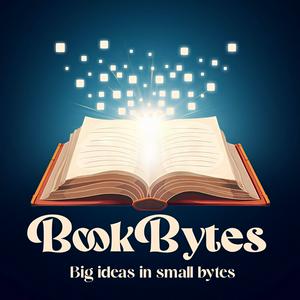
Ontvang de gratis radio.net app
- Zenders en podcasts om te bookmarken
- Streamen via Wi-Fi of Bluetooth
- Ondersteunt Carplay & Android Auto
- Veel andere app-functies
Ontvang de gratis radio.net app
- Zenders en podcasts om te bookmarken
- Streamen via Wi-Fi of Bluetooth
- Ondersteunt Carplay & Android Auto
- Veel andere app-functies


BookBytes
Scan de code,
download de app,
luisteren.
download de app,
luisteren.
